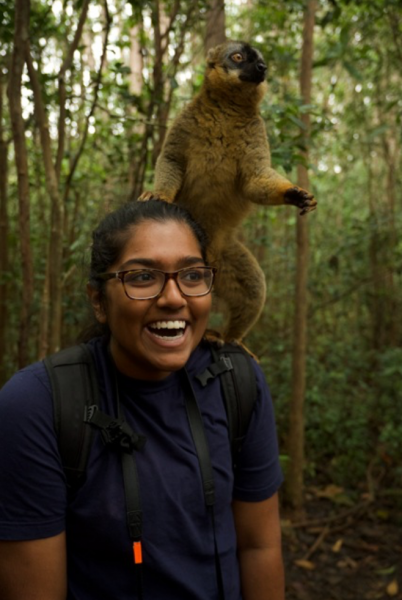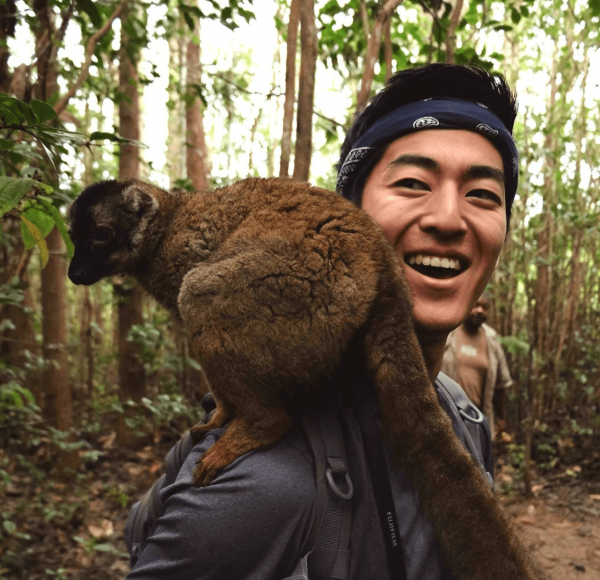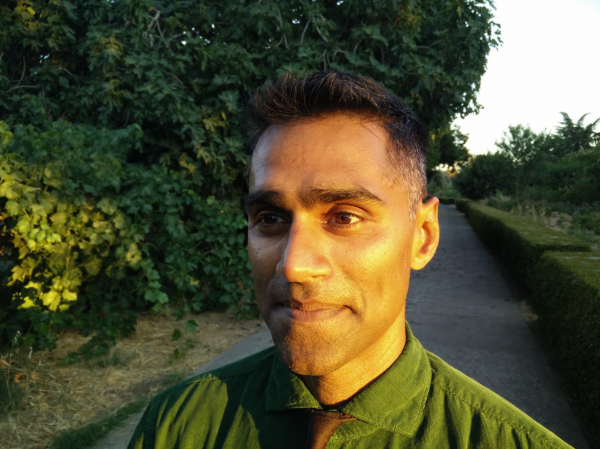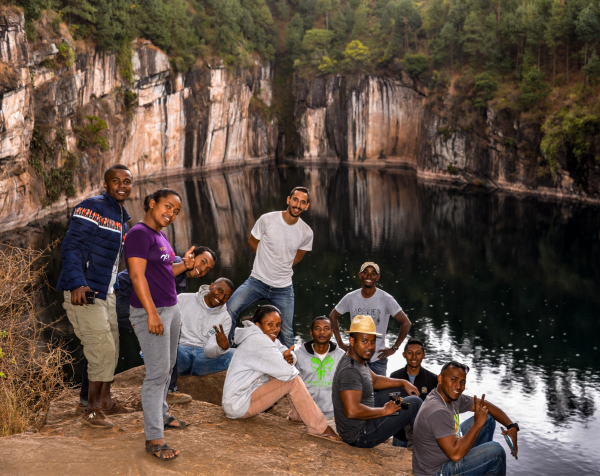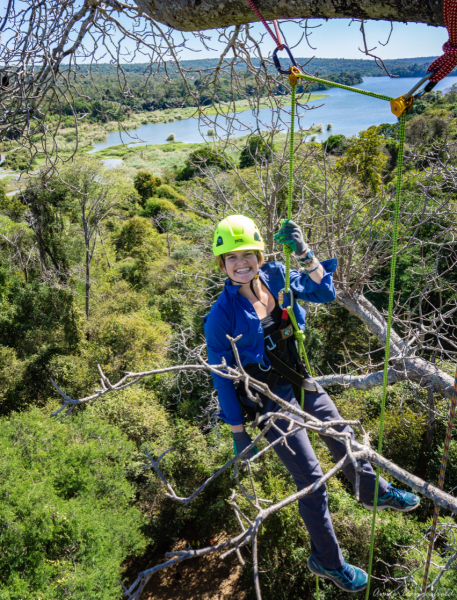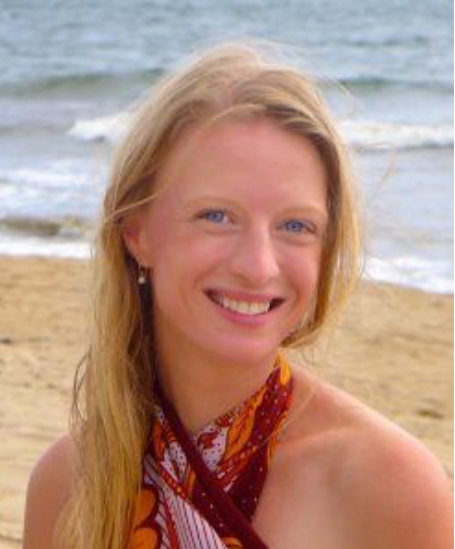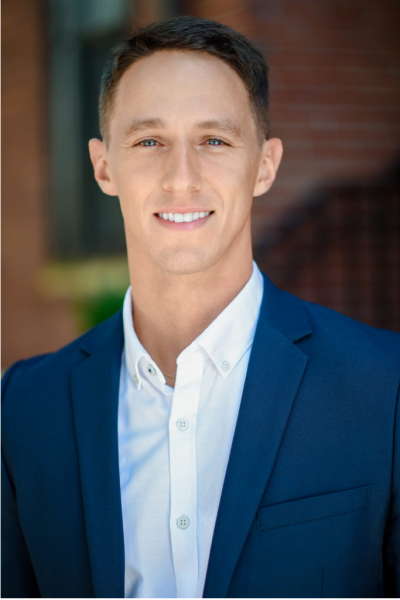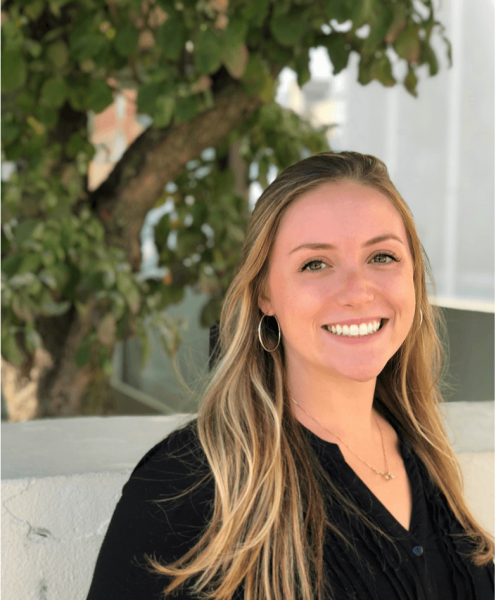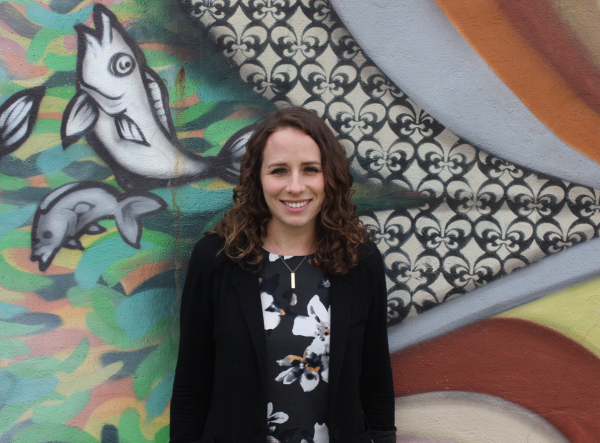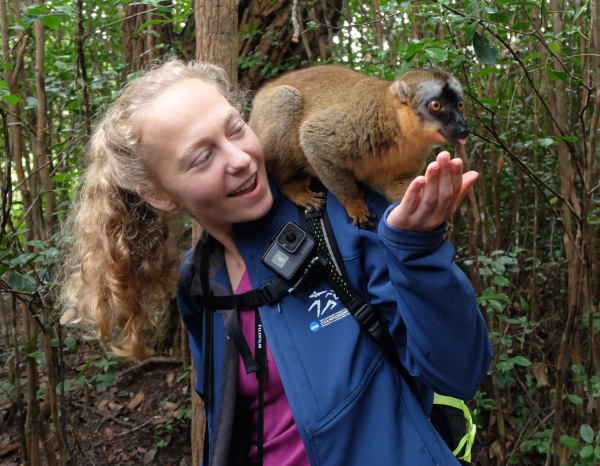Akshaya Annapragada
Akshaya is an undergraduate at Harvard College studying Applied Mathematics with application in Biomedical Engineering, and pursuing a secondary field in Global Health and Health Policy. Her research employs mathematical modeling, stochastic simulations, and big-data analysis to understand how wildlife consumption and bushmeat hunting impact human health, nutrition and livelihoods. Her current projects include predictive modeling to inform policy for poultry vaccination programs, and population modeling of the impact of bushmeat hunting on tenrec populations in Madagascar. Akshaya is excited about the potential for planetary health research to have tangible, positive impacts for local communities.
Akshaya received one of the inaugural Planetary Health Undergraduate Scholars Fellowships, funded by the Henry David Thoreau Foundation in 2017, and is currently an Undergraduate Research Scholar in partnership with the Institute of Quantitative Social Science at Harvard. She received the Detur Book Prize from Harvard College in 2017, for outstanding academic success in the first year of college.
Akshaya’s academic publications may be found here, and her work has been featured on the National Geographic Blog, and profiled by the Harvard School of Engineering and Applied Science. She also serves as the Managing Editor and a Senior Staff Writer at the Harvard Political Review.
Andy Kim
Andy Kim is a recent graduate of Harvard College, where he earned his B.A. in Statistics with a focus in Computational Biology and Bioinformatics. His work focuses on the application of statistics and data science towards a range of health-related fields. His work with Dr. Golden primarily looks at the use of longitudinal study data from Madagascar to identify the economic value that fishing brings to communities with limited access to formal markets. By identifying differences in fish catch across communities, he hopes to capture the varying effects of fisheries management on sustainability. Outside of his work with Dr. Golden, he is researching the potential impact that metabolomic data has for identifying new risk factors related to heart disease. He plans to spend another year finding novel ways that statistical and computational approaches can be used in the field of metabolomics to identify new health determinants. Afterwards, he will pursue a Doctoral degree in Biostatistics, with the overall goal of improving people’s health by exploring the boundary between clinical practice and modern computational approaches to medical data.
Bapu Vaitla
Bapu Vaitla is a visiting scientist at the Harvard TH Chan School of Public Health, a visiting lecturer at the University of California-Davis, and a fellow studying gender inequality with Data2X. His core interest is the relationship between human cooperation and child well-being: why people decide to work together (or not) for mutual benefit, and the effects of these decisions on public policy, cultural change, and ultimately the lives of children. He was born in India and grew up in California. He holds a B.A. in Nature and Culture and an M.S. in International Agricultural Development from UC Davis, and a PhD in international relations/political economy from Tufts University.
Benjamin Rice
I am a PhD candidate in the Department of Organismic and Evolutionary Biology at the Graduate School of Arts and Sciences. My research interests center on the ecology and evolutionary genetics of the Plasmodium parasites that cause malaria. One primary motivation is the observation that global hotspots of diseases, including malaria, often co-locate with hotspots of poverty, malnutrition and environmental degradation. As a result, malaria burdens are often greatest in those communities that are most vulnerable and most difficult to reach. New and improved methods for tracking disease dynamics need to be paired with new efforts to access and study remote communities. To that end, I have been delighted to work with Chris Golden and his team in Madagascar as part of several large field studies since 2014.
My initial research experience was largely lab-based molecular work but I had the privilege of helping lead of a cross-sectional study of 24 communities across four regions in Madagascar (enrolling approximately 6,000 subjects) to study the intersection of environmental change, nutritional status, and disease emergence in 2016-2017. I am currently working on analyzing the samples collected with the aim being to use patterns of variation among malaria parasite genomes to better understand transmission dynamics within communities in Madagascar.
I motivated to use malaria in Madagascar as a model to: (i) apply new advances in genetic analysis of pathogens in Madagascar, (ii) further expand the toolkit of genetic and epidemiological analyses available so that we can better identify and understand the ecological drivers of disease transmission, (iii) enrich data streams so as to more rapidly monitor and improve disease control measures, and (iv) dramatically increase our awareness of the causes and consequences of poor health outcomes in the remote communities of Madagascar – communities that remain understudied or unstudied despite their crucial role to conserving the country’s tremendous biodiversity.
I am originally from Denver, Colorado, where my parents instilled appreciation of the natural wonders of the world as an important habit from an early age. Prior to joining Chris’s group at Harvard, I studied microbiology and global health at Arizona State University and upon graduating in 2012 did a post-baccalaureate research fellowship with the National Institutes of Health (NIH) studying the genetics of the parasites that cause malaria.
My initial research experience was largely lab-based molecular work but I had the privilege of helping lead of a cross-sectional study of 24 communities across four regions in Madagascar (enrolling approximately 6,000 subjects) to study the intersection of environmental change, nutritional status, and disease emergence in 2016-2017. I am currently working on analyzing the samples collected with the aim being to use patterns of variation among malaria parasite genomes to better understand transmission dynamics within communities in Madagascar.
I motivated to use malaria in Madagascar as a model to: (i) apply new advances in genetic analysis of pathogens in Madagascar, (ii) further expand the toolkit of genetic and epidemiological analyses available so that we can better identify and understand the ecological drivers of disease transmission, (iii) enrich data streams so as to more rapidly monitor and improve disease control measures, and (iv) dramatically increase our awareness of the causes and consequences of poor health outcomes in the remote communities of Madagascar – communities that remain understudied or unstudied despite their crucial role to conserving the country’s tremendous biodiversity.
I am originally from Denver, Colorado, where my parents instilled appreciation of the natural wonders of the world as an important habit from an early age. Prior to joining Chris’s group at Harvard, I studied microbiology and global health at Arizona State University and upon graduating in 2012 did a post-baccalaureate research fellowship with the National Institutes of Health (NIH) studying the genetics of the parasites that cause malaria.
Camille DeSisto
Camille DeSisto is a recent graduate of Harvard College, where she studied Integrative Biology with a secondary in Environmental Science and Public Policy. Camille’s work focuses on tropical ecology and conservation. Her research with Dr. Golden uses global datasets to understand how coral bleaching events impact fisheries and, ultimately, human nutrition. Camille was also a recipient of the Planetary Health Undergraduate Scholar Fellowship in 2017. Outside of her research with Dr. Golden, Camille studies how anthropogenic disturbances impact species interactions and forest community structure in tropical ecosystems. She is currently researching carbon dynamics of mangrove forests in Guayaquil, Ecuador, as a Fulbright Student Researcher.
Cortni Borgerson
Dr. Cortni Borgerson, assistant professor of Anthropology at Montclair State University,recently completed her Post Doctoral Fellowship with Chris Golden at Harvard University’s T.H. Chan School of Public Health (see here for current website). Her research explores the interactions between environmental and human health. She is particularly interested in why people choose to hunt endangered species, and examines how this hunting affects both human health and wildlife conservation. Dr. Borgerson is currently managing numerous interventions to improve food security and reduce unsustainable hunting in Madagascar, including programs on the farming of native edible insects and sustainable poultry. In addition to her field research and active development interventions, she is a National Geographic Explorer, an Animal Planet guest co-host, and a Commission member for the Madagascar Section of the IUCN SSC Primate Specialist Group.
Dylan Lennon
Dylan Lennon is a Postdoctoral Fellow in the Department of Nutrition at the Harvard T.H. Chan School of Public Health. His current work in Dr. Golden’s research group uses high-resolution dietary intake data along with clinical meta-data to map the nutritional intake and nutritional status of individuals in Madagascar and Kiribati. Dylan’s interests cut across nutritional ecology, gut ecology, and nutritional status, with a focus on populations experiencing malnutrition or food insecurity. Dylan has a Ph.D. in Nutritional Science from the University of Florida with a specific focus on diet and microbiome analysis, and a B.S. in Microbiology and Cell Science from the University of Florida.
Haley Barravecchia
Haley Barravecchia is a second year Master of Science student in the Environmental Health department. As a water scientist, Haley focuses on salt water systems and impacts of ocean water quality on ecosystem and human health. Her current research is based in Kiribati, investigating reef ecosystem success from water quality as part of the Healthy Reefs, Healthy I-Kiribati Initiative funded by the National Science Foundation and Kiribati Government.
Haley is interested in waterborne illness, particularly the source and manifestation of ciguatera poisoning. Her research is investigating the critical components of aquatic ecosystems, including the bacteriology, heavy metals, and other chemical constituents present. Previously, she worked in the Harvard Center for Climate, Health, and the Global Environment (C-Change) mapping underground water contamination from fracking and proximity of fracking sites to school drinking water supplies.
Haley graduated from Smith College in 2018 with a B.A. in Biology and Spanish, concentration in Translation Studies. After completing undergraduate research"‹ on ocean water bioremediation and toxicology, she was elected to Sigma Xi, as well as received the Amey Randall Brown and Dr. Charlena Seymour awards for her biological research contributions and leadership. Haley is also a member of the Harvard Climate Leaders Program and the Harvard Sustainability Council.
Haley is interested in waterborne illness, particularly the source and manifestation of ciguatera poisoning. Her research is investigating the critical components of aquatic ecosystems, including the bacteriology, heavy metals, and other chemical constituents present. Previously, she worked in the Harvard Center for Climate, Health, and the Global Environment (C-Change) mapping underground water contamination from fracking and proximity of fracking sites to school drinking water supplies.
Haley graduated from Smith College in 2018 with a B.A. in Biology and Spanish, concentration in Translation Studies. After completing undergraduate research"‹ on ocean water bioremediation and toxicology, she was elected to Sigma Xi, as well as received the Amey Randall Brown and Dr. Charlena Seymour awards for her biological research contributions and leadership. Haley is also a member of the Harvard Climate Leaders Program and the Harvard Sustainability Council.
Jessica Gephart
Jessica Gephart is a postdoctoral fellow at the National Socio-Environmental Synthesis Center (SESYNC). Her work focuses on the feedbacks between increasingly globalized food systems and the environment, with an emphasis on seafood systems. She brings together international trade data and environmental impact analysis to examine both the impacts of food production on the environment, as well as the impacts of environmental shocks on food production and trade. Her research projects range from examining the environmental impacts of diets to case studies of the local to global consequences of environmental shocks to seafood production. Throughout her research and collaborations, Jessica’s work aims to identify opportunities to improve sustainability and resilience within the increasingly globalized food system. You can find out more information here at Jessica’s research website.
Sarah Guth
Sarah is a PhD student at UC Berkeley. Her work focuses on the exchange of pathogens between wildlife and human populations, with an emphasis on the drivers of spillover and spillback. She applies a combination of epidemiological models, geospatial analyses, and field-based approaches to understand questions regarding the evolutionary and spatial dynamics of emerging and re-emerging zoonoses. Her current projects include modeling the risk of arbovirus spillback in Brazil, characterizing the role of spatial structure in the transmission of bat-borne pathogens in Madagascar, and applying statistical models to understand the evolution of zoonotic virulence. Before beginning at Berkeley, she graduated from Middlebury College with a B.A. in Conservation Biology, and spent two years working for the Planetary Health Alliance.
Tabitha Lumour-Mensah
Tabitha Lumour-Mensah is a first year Master of Science student in the Environmental Health department. She is interested in the causes and consequences of heavy metal exposure on human and ecosystem health. Her current research with Dr. Golden focuses on examining dietary sources of mercury in people living in two regions in northeastern Madagascar in conjunction with the work being done through Madagascar Health and Environmental Research (MAHERY).
Previously, Tabitha completed a research project centered around the effects of mercury exposure on the health of songbirds. She studied differential DNA methylation patterns associated with high and low blood mercury levels in wild songbirds and was awarded the Charles M. Cannon Memorial Prize for her work.
Tabitha graduated from Princeton University in 2018 with her A.B. in Ecology and Evolutionary Biology and a concentration in Korean Language and Culture. After graduating, she worked in Botswana with a non-profit organization focused on HIV prevention and numerical literacy where she was able to learn more about community organizing and implementation of public health programming.
Previously, Tabitha completed a research project centered around the effects of mercury exposure on the health of songbirds. She studied differential DNA methylation patterns associated with high and low blood mercury levels in wild songbirds and was awarded the Charles M. Cannon Memorial Prize for her work.
Tabitha graduated from Princeton University in 2018 with her A.B. in Ecology and Evolutionary Biology and a concentration in Korean Language and Culture. After graduating, she worked in Botswana with a non-profit organization focused on HIV prevention and numerical literacy where she was able to learn more about community organizing and implementation of public health programming.
Zach Strecker
Zach Strecker is a recent graduate of Harvard College, where he earned his B.A. in Psychology with a secondary field in Global Health and Health Policy. His work with Dr. Golden focuses on the development of a mobile health surveillance system for monitoring outbreaks of infectious disease and assessing health care system vulnerabilities in Madagascar. Identifying trends in these data may assist in the creation of models that allow researchers to forecast the timing and spread of infectious disease outbreaks. Outside of his work with Dr. Golden, Zach is researching how malaria protective mutations in humans influence malaria transmission in Madagascar using genetic and clinical data. Afterwards, he plans to pursue a Doctor of Medicine and a Masters of Public Health with the intent to research and implement data-driven strategies for the improvement of medical interventions in the United States and abroad.
